#story of a prostiute
Text
Happy Birthday in the afterlife to one of the most incredible filmmakers, Seijun Suzuki!






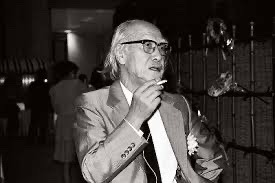
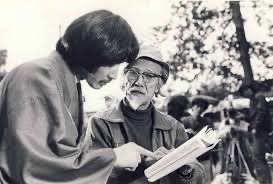
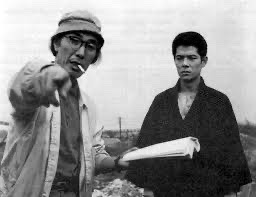

#seijun suzuki#branded to kill#tokyo drifter#underworld beauty#gate of flesh#story of a prostiute#tattooed life#pistol opera#princess raccoon#fighting elegy#Kanto wanderer#youth of the beast#Japanese cinema#cult movies#legend#filmmaker
24 notes
·
View notes
Note
Greetings! I have been reading some Plutarch and came across a section that confused me. In Alexander 22.1 it says that Theodorus tries to sell Alexander two young boys, but he refuses and is disgusted by the offer. Why does Alexander make such a big deal out of this? Is it because he doesn't like boys or because he is against prostiution or sexual slavery? I'm not quite sure what to make of this.

Plutarch, Moralizing, Alexander, and akratía
The passage alluded to comes from Plutarch’s biography Alexander 22.1-5; below is the Loeb Perrin trans., but note I used a few different words, in brackets, and sometimes included the Greek because I want to address it. I’m quoting the whole thing because it needs to be read as a whole. Plutarch has a “message” in this text.
When we modern readers first encounter these ancient texts, it can be really tempting to do two things:
Take it all at face value (because we don’t know [yet] what’s problematic).
Take it apart into isolated anecdotes, and thereby lose the context.
The latter is especially easy when reading Plutarch, as he writes that way: anecdotally. But both ways of reading these texts lead to misunderstanding.
Remember, NONE of our surviving sources about Alexander were written during or even shortly after his life. Some use sources that were written by people who knew Alexander, including material from court historian Kallisthenes. But they aren’t doing “cut-and-paste.” They’re editorializing. Even those writing at the time or shortly after Alexander bent stories to match then-current politics.
Plutarch is an essayist. He has a MESSAGE. So, as you read the full chapter text below, see if you can pick out his message(s):
“Moreover, when Philoxenus, the commander of his forces on the seaboard, wrote that there was with him a certain Theodorus, of Tarentum (Greek colony in Italy), who had two boys (paides) of surpassing beauty, to sell, and enquired whether Alexander would buy them, Alexander was incensed, and cried out many times to his friends, asking them what shameful thing Philoxenus had ever seen in him that he should spend his time in making such disgraceful proposals. And on Philoxenus himself he heaped much reproach in a letter, bidding him send Theodorus to [ruin] (eis ton olethron), merchandize and all. He severely rebuked Hagnon also for writing to him that he wanted to buy Crobylus, whose beauty was famous in Corinth, as a present for him.
“Furthermore, on learning that Damon and Timotheus, two Macedonian soldiers under Parmenio’s command, had [seduced] (diaphtheirō) the wives of certain mercenaries, he wrote to Parmenio ordering him, in the case the men were convicted, to punish them and put them to death as wild beasts born for the destruction of [human]kind. In this same letter he also wrote expressly concerning himself: “As for me, indeed, it will be found that I have not seen the wife of Dareios or desired to see her, but I have not even allowed people to speak to me of her beauty.” And he used to say that sleep and sexual intercourse (sunousiazienai), more than anything else, made him conscious that he was mortal, implying that both weariness and pleasure arise from one and the same natural weakness (astheneias tēi phusei).
“He had also the most complete mastery over his appetite, and showed this both in many other ways, and especially by what he said to Ada, whom he honored with the title of Mother and made Queen of Caria. When, namely, in the kindness of her heart, she used to send him day by day many viands and sweetmeats, and finally offered him bakers and cooks reputed to be very skillful, he said he wanted none of them, for he had better cooks which had been given him by his tutor, Leonidas; for his breakfast, namely, a night march, and for his supper, a light breakfast. “And this same Leonidas,” he said, “used to come and open my chests of bedding and clothing, to see that my mother did not hide there for me some luxury or [delicacy].”
It’s a bit ironic that this ask came in not long after the request for a director’s cut of that next-to-last chapter in Rise, as that chapter addresses (among other things) Alexandros’s fear of akratía. And akratía (or really astheneia tēi phusei—weakness of spirit) lies at the root of Plutarch’s moralizing here.
Even if you know zero about Greek morals, you can pick up on the basic message Plutarch is peddling: self-control is good, a lack of self-control—shown by the free reign of the passions—is bad.
It’s not complicated.
Yet this is ALSO part of a larger theme in Plutarch’s Life: Alexander started out good and moral and self-controlled (this chapter is about the Good Alexander). But as he grew more successful, success bred pride, which slid into hubris. And exposure to Oriental (used on purpose) Luxury undermined all his former self-control. YET, in other places, he presents a different message; in “On the Fortune of Alexander,” he sets out to argue that Alexander’s success wasn’t just luck, but due to being a “philosopher in armor,” beloved of the gods.
This is how Plutarch works: he’ll pick and choose the stories he relates, knitting them together in such a way as to make his point.
That means you should be asking ANOTHER question or three.
Can we trust these are real stories? Did they actually happen?
Or maybe they happened, but Plutarch bent them—tweaked the details—to suit his message?
And, if he did tweak them…how? What did he change? Did he perhaps put words in Alexander’s mouth?
With Plutarch, it’s not always clear which one of the above applies to which anecdote. Frustratingly.
We must pick them apart…see what we can figure out.
I want to start with the MIDDLE story about the two Macedonians from Parmenion’s command who were accused of seducing the wives of two mercenaries. The verb there (diaphtheirō) has a couple different meanings, but generally indicates “corruption.” When used of a woman, it’s specifically seduction, which was (to the Greek male mind) corruption.
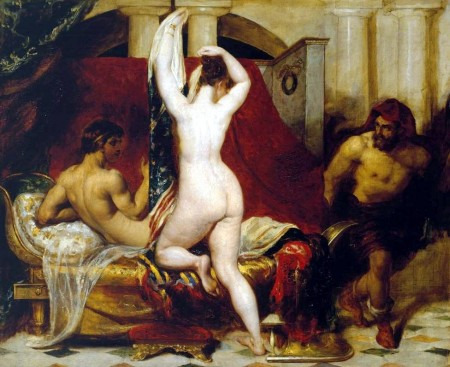
I suspect this may be an actual event, which is why I chose to look at it first. We can make a guess as to what happened, and then see how Plutarch turned it to his own purposes.
Why would Alexander take an interest in what seems to have been a personnel matter, if these guys are under Parmenion’s command? This incident could result in significant unrest.
Philip and Alexander both ran a tight ship, especially when misbehavior owed to challenges to their authority or arrogance from one unit to another. What seemed to be minor infractions could earn major disciplinary action. We had a similar blow-up in Philip’s army in Thrace between mercenaries and Macedonians as well (c. 340/39); it resulted in a RIOT that almost got Philip killed. (I describe this in Rise, where Alexandros saves Philippos’s life.) Ergo, that may have loomed in Alexander’s mind. His letter to Parmenion let his Second know he’d back him if a guilty conviction should come down, to execute Macedonians for an offense against mercenaries.
Remember: Mercenary troops were typically looked down on; they fought for pay, not honor. Here, two uppity Macedonian soldiers seduced mercenary wives and figured they could get away with it. Apparently, this occurred while Parmenion was away from the main army, so we can set it post-Issos during the Levantine campaigns, Parmenion likely in Damascus.
In Greek society, adultery was an affront against a man’s timē, or personal honor, and might well result in an honor killing. Not to mention stir up a lot of bad blood between different army units. Alexander wants this taken care of, and an example made: execution if guilty. He’s sending two messages: justice is justice. But also, “Don’t fuck with me.” As noted, both he and his father were ruthless about army discipline. He cares far less about the women than about the potential for another riot between Macedonian and mercenary troops over a matter of honor.
Plutarch takes this event and re-fits it for HIS message. This sort of “snip-and-edit” was quite common in ancient narratives.
These Macedonian soldiers are negative foils for Alexander. Notice what immediately follows: Alexander included in the same “letter” to Parmenion that he not only didn’t seduce Darius’s wife, but he wouldn’t even look at her, and—even better!—he won’t let other people talk about her beauty to him.
See the parallel?
Ironically, it’s from Plutarch that we learn she later died in childbirth not long before the Battle of Gaugamela…well after the baby could have been Darius’s. (E.g., it was almost certainly Alexander’s.) But Plutarch doesn’t make any connections (of course), and merely says Alexander wept for her as if she were his own wife (well, duh), and gave her a splendid burial. There, Plutarch’s message is how valiantly he treated the wife of his enemy.
See how he tweaks and edits things to make them say what he wants them to say?
Now, let’s consider the refusal of the boys. Plutarch resolutely skates over Alexander’s sexual encounters outside of proper marriage, or mistresses. He even says in one place Alexander only “knew” Barsine before marrying Roxane, who he claims was a love match. If you believe that, I have a bridge in Brooklyn to sell you.
In another place, he claims Philip and Olympias were concerned about Alexander’s lack of interest in women, so they (together, note!…a hint they were hardly always at odds) hired Kallixena—a famous hetaira—to seduce him. He turned her away.
Plutarch isn’t implying he’s gay. He’s implying Alexander isn’t a slave to his passions. Don’t read that with modern eyes!!!
It’s not unlike ancient expectations for athletes. Unlike the shenanigans famous in modern Olympic villages, in the ancient Olympics (or any Contests), most athletes were encouraged NOT to have sex before competing. Why? Because a man’s vitality was believed to be released in his ejaculate. Sex therefore weakened a competitor.
Ergo, Alexander’s reluctance isn’t related to sexual preference, but to sexual continence. A philosophic ideal. Refusal of sex = self-mastery. To have sex weakens him…hence the “sleep and sex” line reminding him of his mortality.*
The boys mentioned here are (slave) male prostitutes. “Boy” (paides) means both literally a child but is also the common term for slaves. His refusal of them is similar (for Plutarch) to his refusal of Kallixena. Indulgence in beautiful boys is akratía, not because they’re boys, but because their sole purpose is pleasure. Whether beautiful Kallixena or beautiful Krobylos (Crobylus), indulging in pleasure is a weakness.
We do (sorta) find a thread of disapproval for male-male pairings in Plutarch, although it’s hard to know exactly what’s at its root. Nothing like modern Christian homophobia. Yet across his writings, Plutarch elevates marriage. He turns Alexander’s marriage of Roxane into a love story to justify it, but also to show that he was “overcome by love,” not lust, and so properly married the girl rather than raped her. It’s still part of the same theme.
More likely we’re seeing Romanizing in the ethics of the “Second Sophistic,” to which Plutarch belonged. We need to view these boy slaves through the lens of first century BCE Rome, which had imported a lot of Eastern luxury for the “debauched” upper classes—which Plutarch, et al., railed against. So, he’s not necessarily understanding them in a 4th century context, but a 1st century (BCE) context. Roman morals were always less accepting of “Greek love,” as they termed it. I’m no expert on Roman sexual mores compared to Greek, but you can read a little more here: Roman Male Prostitution. Some really icky things were done with young boy prostitutes in Rome, which wasn’t as prevalent in Greece earlier (or at least, we hear less of it). Such Roman indulgences are likely what came to Plutarch’s mind, regarding these “boys.”
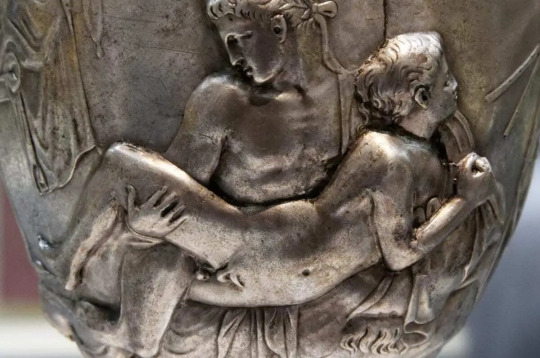
So I hope that contextualizes a bit better what’s going on in this passage.
IN THE END: We shouldn’t ask what Alexander’s reaction to the offers tell us about him. We should ask what Plutarch’s rendition of the anecdotes tells us about how Plutarch wants us to see Alexander at this relatively early point in his rise to success.
———————————-
*This is part of a general line of reasoning that will connect to neo-Platonism and Gnosticism with the body as bad and sex as especially problematic, which eventually fed into early Christianity along with Eastern asceticism to produce particularly body-negative views. These aren’t just Christian. They can be traced pretty far back into Classical, and even late Archaic Greek philosophy.
#ask#alexander the great#classics#ancient greek sexuality#ancient roman sexuality#plutarch#ancient macedonian army#ancient army discipline#was alexander gay?#akratia#sophrosune#all things in moderation#alexander the great and sex
19 notes
·
View notes
Text
Reflections on a Year of Reading Nepalese Literature
Titles Read: The Royal Ghosts by Samrat Upadhyay, Little Princes by Connor Grennan, Sold by Patricia McCormick, Seasons of Flight by Manjushree Thapa
Nepal was a country I had in mind to read and study their literature and culture. I have some family members that are Nepalese but I know nothing about their culture or the country in general. Through reading Nepalese literature, I learned that most people are buddhist and it plays a big part in their life. People will go to temples and pray or have a small shrine in their home to pray. In Nepal, there is common for the father/male figures to show hierarchy and dominance over females. It is expected that girls should clean around the house, do chores, go to school, and tend for the father. As the girls get older, it is expected that they find someone quickly to marry so they can be sent off. If the girls cannot find someone, their parents will most likely set up an arranged marriage. This was a big culture shock because here, people don’t rush to get married but instead they take things slow and fall in love. Something sad that I learned was very common in Nepal was when reading Sold is that human trafficking happens often in Nepal in small villages with young girls. Sometimes the girls will be taken to India which is a bordering country down south and put into prostiution homes to sell their body and they have to pay their debt off in order to leave. In general it was very shocking when I read about their culture and comparing it to American culture.
The Royal Ghosts is a collection of short stories of Nepalese people going through everyday struggles in their life. One of my favorite short stories themes that I thought was universal was there were gender roles that women had to fit in. This is something that women around the world are always expected to do. In this particular short story the girl finally broke free of her father telling her what to do and she found her own happiness. This made a big impact on me because girls should be able to do what they desire and not what is planned out for them by their parents.
Little Princes is about Grennan’s journey on opening an orphanage for kids in Nepal and helping parents find their lost children after the war. In this book, I learned that kids in Nepal are very grateful for what they have even if it is just something little. They are also very outgoing and love to meet new people and make them feel welcome. I was most excited to read this book and it was very heartwarming because it took a few years for Grennan to travel back and forth between the states and Nepal but the kids still remembered him and was thankful for him being able to provide a home with better conditions.
Sold is a novel that will always stick with me in the back of my head. It was very shocking reading the first half of the book where she was tricked into working as a maid in a rich home to her body being used my men in a prostitution place. I never knew that this happened in Nepal until she arrived at the place and there were many other young girls like her there giving advice on how to handle men that use her body and how to stay safe without getting caught.
Seasons of Flight starts off with the main character unable to identify who she is when someone asks “Where are you from?” even though she is from Nepal. I related to this book the most because growing up I was also asked this often and whenever I would say “I’m Vietnamese”, I would have to justify my answer by saying where it is located even though I shouldn't have to. The main character has also responded with a country like India because it borders Nepal and people know India more. She isn’t able to represent who she really is.
Through reading 10 pages everyday and summarizing what I read throughout the week, I found myself forming a habit of doing most of my reading on Monday and Tuesday and scheduling my post for each day of the week so I wouldn’t forget to read one day and miss a quote. Depending on the book, I would either be really excited to read the book or dread reading the book. Most of the time I really enjoyed reading the book and it would make me want to continue and pick more important quotes. Other than that, I am very proud to have read 3 books this year since that is the largest amount I have read in awhile.
Word Count: 785
1 note
·
View note
Quote
17-year-old orphaned girl, Ochanya Samson from Benue State was left almost blind in one eye after she was brutally assaulted by a man for turning down his sexual advances.
Facebook user Bakia T. Thomas, who shared the shocking story of the young girl also revealed that she was raped, had a baby at the age of 15. Her uncles who threw her out of the house and sold her baby for N500,000.
He further disclosed that Ochanya went into prostiution to survive and had quit before the recent attack. Thomas said he kept the girl with some woman in Biyagi, Kubwa, Abuja, until they can get a place for her. Read below:
I need urgent advice please.We met Ochanya Samson yesterday evening, 17years of age from Benue State.Seriously molested by a man who called on her and she refused to go, she almost lost an eye.Now we were together with Godsent M. Sadoh when we saw her entering the hospital.An orphan with no mother and father, her uncles drove her away because of her character, that version of the story was told to us after I got her treated yesterday.Now she lives with a woman who has also decided to send her away because she is scared of Ochanya's uncles.This girl has gone through rape, eventually had to go into prostitution just to survive and just when she made up her mind to quit, this happened to her.10minutes ago, I got a call from the woman giving her shelter telling me a shocking story.Ochanya had a baby when she was 15 and her uncles who threw her away took her to Aba and sold the baby for 500,000naira and took the money from her.Returning to Abuja, they got a house, same house they live now and they sent Ochanya away.After I left the woman's house yesterday night with my friend, I saw how furious they really were. They went behind and threatened the woman to send her away so we don't get to see her again.This is so she doesn't reveal this story to me.How did the world turn this wicked?I am looking at my food before me but I lost my appetite.What went wrong with creation?How did man suddenly turn this evil?Sell a baby for money?
http://icechuks2.blogspot.com/2019/04/sad-story-of-17-year-old-girl-who.html
0 notes